Gardeners often ask the question, how do you get rid of aphids naturally since aphids are a common enemy for most gardens. Though dealing with pests is one of the most challenging and annoying tasks in the garden, it’s important if you want to restore the health of your plants.
Natural ways to get rid of aphids include:
● Hose off the aphids with a strong jet of water.
● Spray plants with soap and water solution, or insecticidal soaps, or neem oil.
● Dust plants with diatomaceous earth.
● Introduce beneficial insects like ladybugs and lacewings.
Besides the ones listed above, there are other natural home remedies too against aphids. It’s important to identify the pests and save your plants in time before aphids take their toll and leave you with stunted, weak plants, struggling to survive.
How Do You Get Rid Of Aphids Naturally
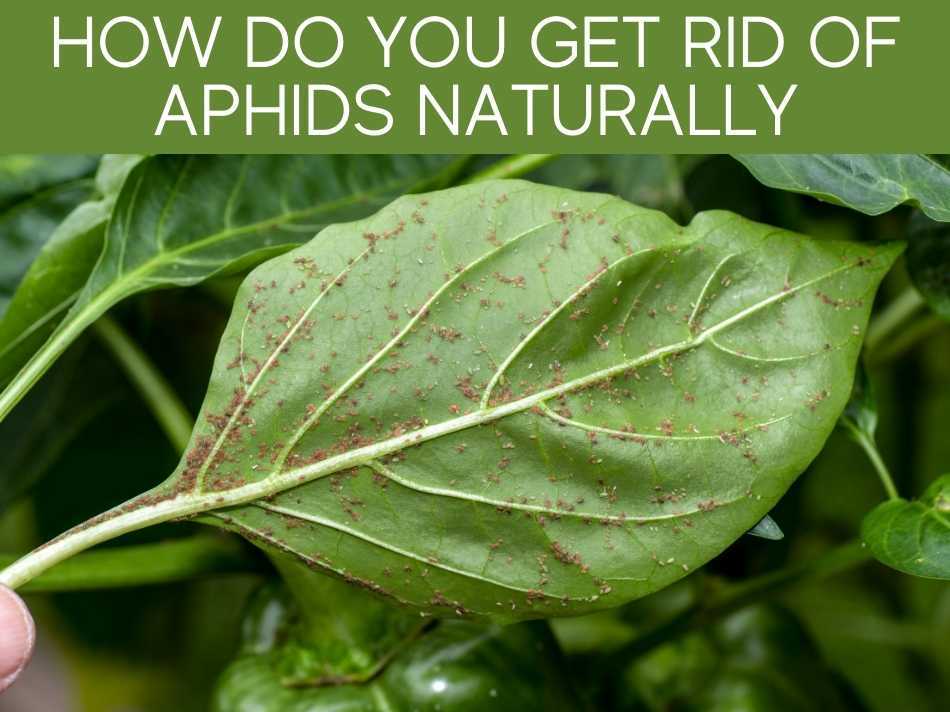
Aphids are small, soft-bodied insects that suck the sap from your plants, weakening the plants, stunting their growth and damaging flowers and fruit.
As they feed, they leave behind a sweet, sticky substance called “honeydew”, that attracts other insects, such as ants, to the garden.
Honeydew also makes the plants susceptible to fungal diseases.
It’s important to control the pests before they damage the plants beyond repair.
One of the most popular natural ways to get rid of aphids is to hose them off.
Spray the plants with a strong jet of water from your garden hose to dislodge the pests.
This technique is most effective earlier in the season when the infestation is not too heavy.
Another simple method is to remove aphids by hand and drop them in a bucket of soapy water.
Both these techniques are effective with light infestations and will prevent aphids from taking a hold of your garden.
How To Get Rid Of Aphids Organically
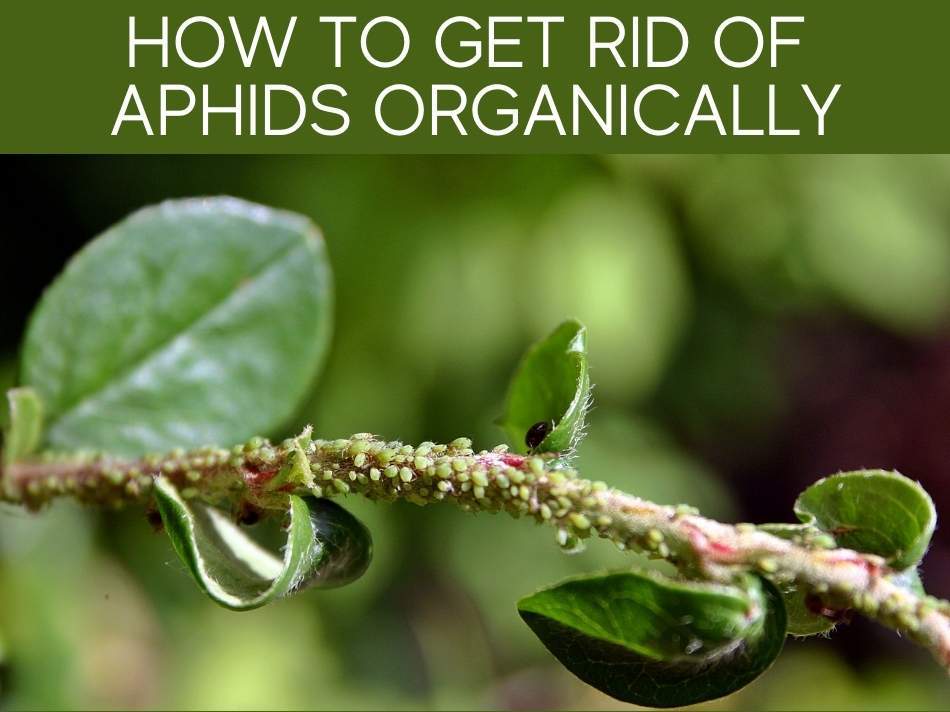
It’s worth keeping your garden free of harmful chemicals that may negatively affect your plants, beneficial insects that visit your garden and the environment as a whole.
However, is it possible to bypass chemical use and still get rid of the aphids that are bothering your plants?
As it turns out, it is!
Organic insecticidal soaps and oils are effective against soft-bodied insects, including aphids.
Plant-derived oils are commonly sourced from neem and canola oil.
They kill aphids by smothering their bodies, so a complete coverage of the infested area is necessary.
Though less strong than inorganic pesticides, organic insecticidal soaps and oils are less harmful to plants, animals and humans.
Prepare a solution in a lot of water, with only 1 to 2% oil and spray it on the infested areas.
Since they are only effective on the day of spraying, you’ll need to reapply multiple times for the treatment to work.
If you need to get rid of slugs, check out the full article on getting rid of slugs naturally.
Natural Way To Get Rid Of Aphids On Plants
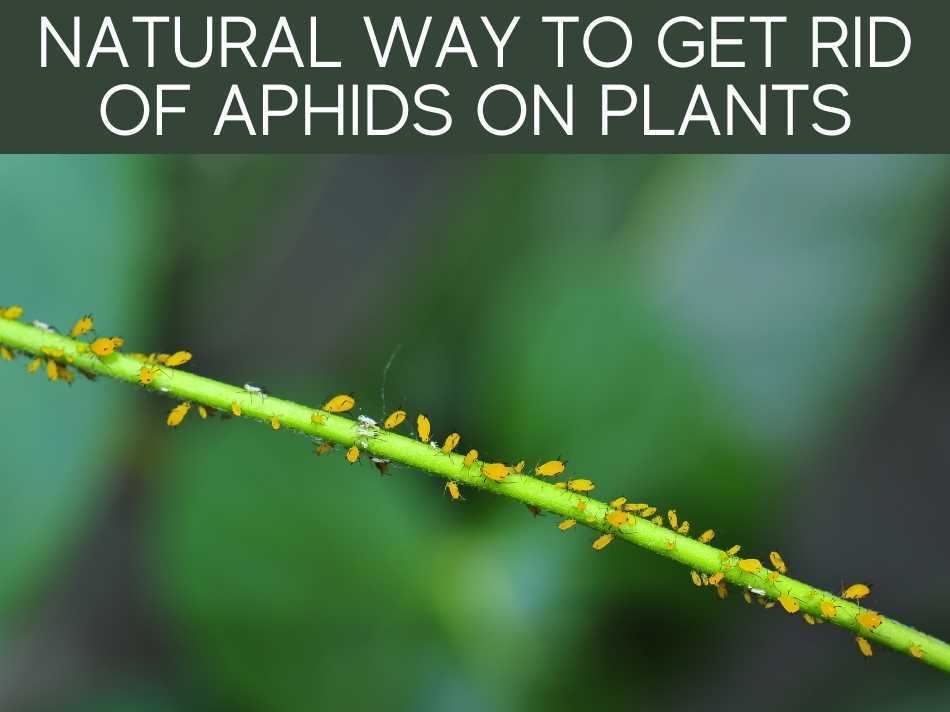
The best time to control aphids along with other pests is earlier on in the season when the infestations are light.
Once the weather gets suitable for the pests and plants become heavily infested, the problem becomes difficult to control.
Vegetable crops are the ones that are most susceptible to aphid attacks, so plant your annual seedlings under protective covers.
Alternatively, you can also grow seedlings indoors or in greenhouses until they are older and more resistant to aphid damage, which is when you can transplant them into the garden.
Silver colored reflective mulches are also effective in preventing the spread of aphid-borne viruses.
In addition to aphids, reflective mulches also keep leafhoppers and other insects away.
Remember to remove these mulches later in the season when temperatures soar to prevent overheating the plants.
Can Neem Oil Kill Aphids
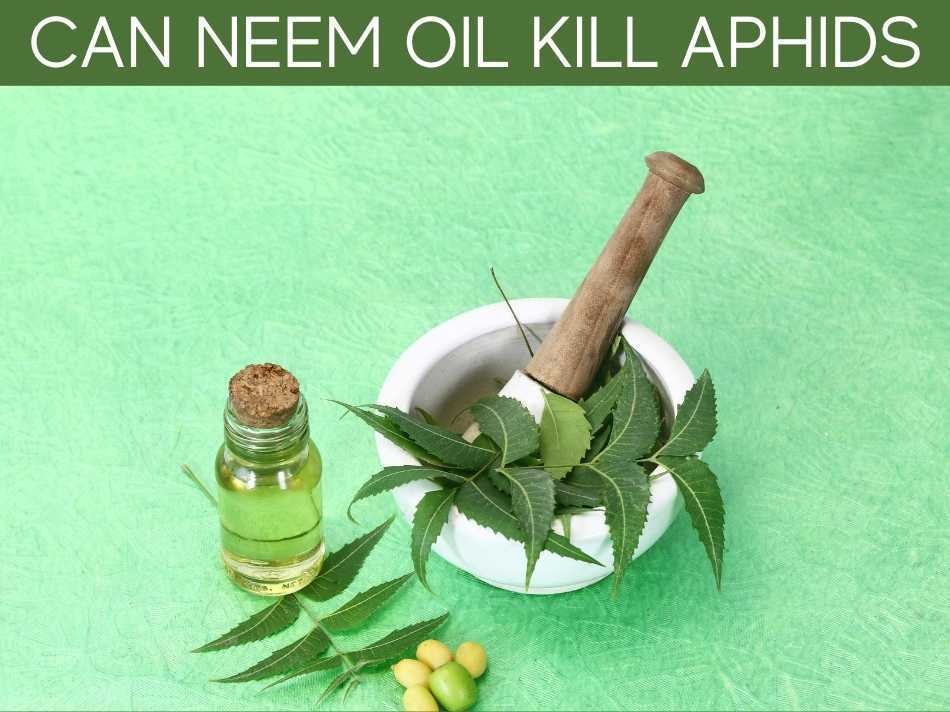
If you’re looking for less toxic insecticides to use in your home garden, horticultural oils are a good choice.
They help get rid of most soft-bodied insects, including aphids, without leaving any significant negative impact on the plants or the environment.
Neem oil is a botanical insecticidal oil sourced from the seeds of the neem tree.
Neem oil effectively kills small insect pests, including aphids, thrips and spider mites.
Similar to other horticultural oil sprays, neem oil kills pests by suffocating them.
Since neem oil also repels beneficial insects, use it with care and only use to the extent that’s necessary.
Follow the instructions to prepare the solution or use it as given, if it is in ready-to-use format, and spray the infected areas.
In addition to getting rid of aphids, neem oil is also effective against fungal diseases.
Do Ladybugs Control Aphids
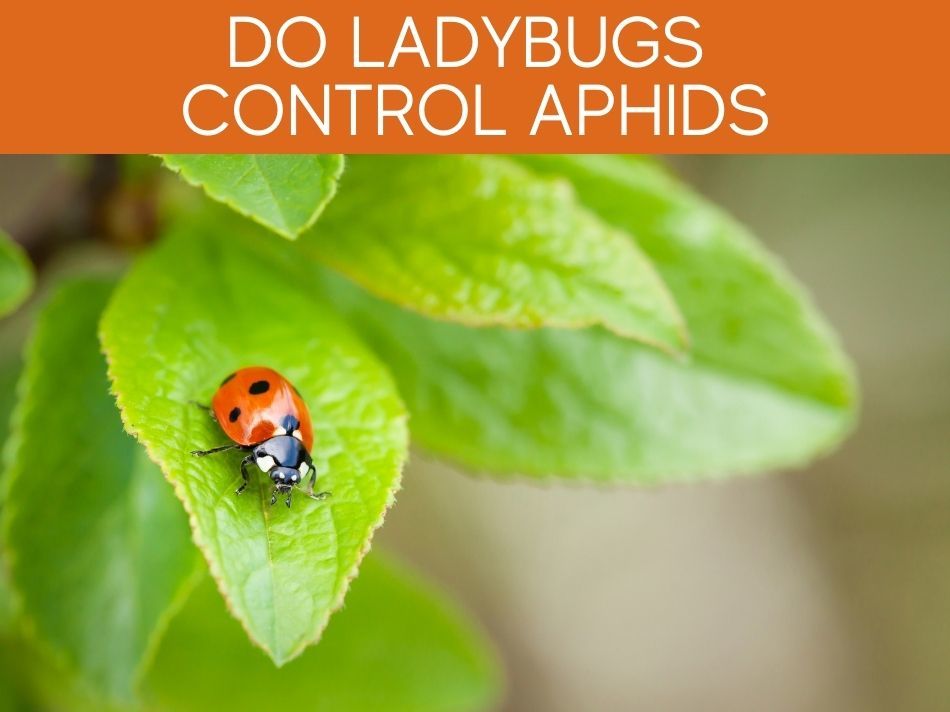
Ladybugs are natural predators of aphids.
Many garden centers sell ladybugs to control the aphid population.
According to research by the University of California, releasing ladybugs can effectively reduce aphid population in small gardens.
Ladybugs can be purchased online or from local nurseries.
Lightly mist the plants before releasing the purchased ladybugs to encourage the ladybugs by keeping them hydrated.
Release them during the cooler part of the day, at dusk or evening, and repeat the release every few days as most fly away within 48 hours.
When managed carefully, these predatory insects can help reduce the aphid population in your garden and improve your plants’ health.
Do Cold Temperatures Kill Aphids
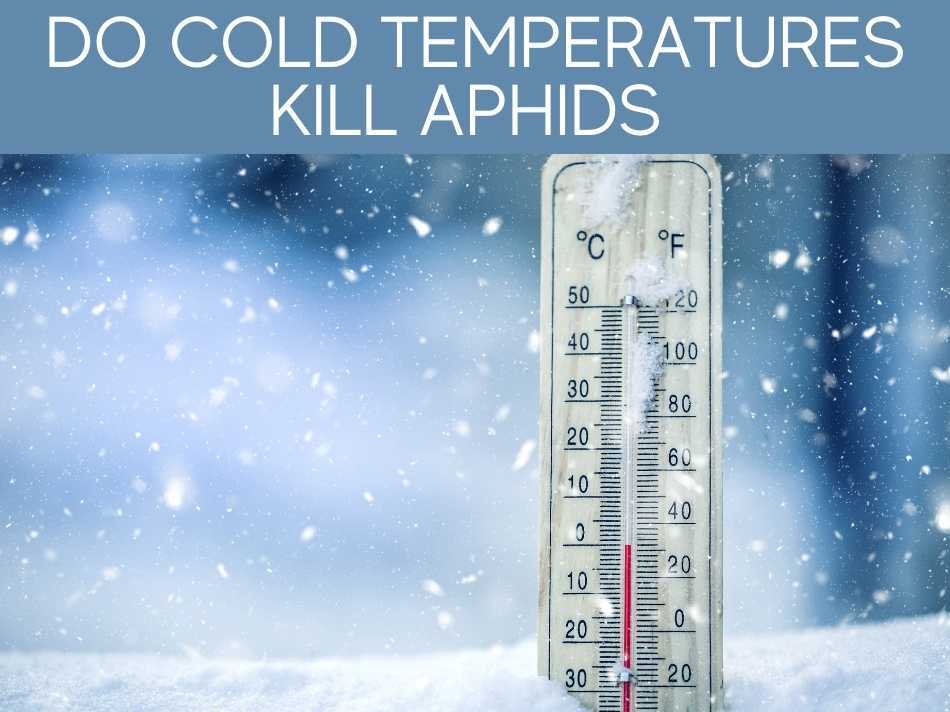
If all else fails, can you expect the aphid population to drop as the cold temperatures of the winter season approaches?
Aphids inflict the most damage in late summers when the temperatures are warm, but not too hot.
The ideal temperature for aphid activity lies in the range 65 to 80°F.
Though some aphids are active all year round, for most aphid species, the activity is limited during the coldest part of the year.
Aphids are cold hardy, and their eggs can survive even when exposed to temperatures as cold as -42C.
Aphid eggs typically overwinter to hatch as soon as the temperatures get warmer in spring.
So although aphids are not active in the cold temperature, temperature change isn’t too likely to kill them.
Instead of relying on the weather, you need to employ effective control methods to get rid of the pests.
Home Remedies To Get Rid Of Aphids On Roses
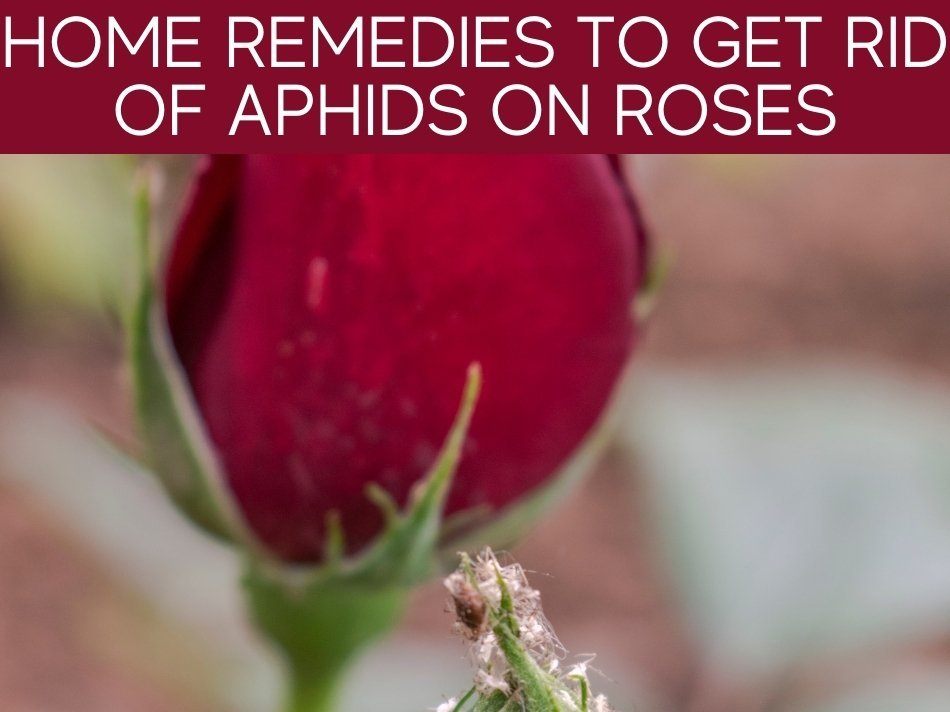
Aphids are common pests that attack roses, primarily attracted to the tender, new growth, reproducing rapidly and weakening the plant.
Thankfully, there are several natural ways of getting rid of aphids on your rose bushes.
If there are only a few aphids on the rose plants, they can be dislodged by a strong jet of water.
You can also create a natural homemade insecticidal soap spray to kill off aphids.
In 1 quart of warm water, mix 1 tablespoon of dish soap, and some cayenne pepper and add the mixture to a sprayer bottle.
Apply the insecticidal spray liberally on the infested areas and repeat the application as needed until the aphid population drops.
Does Garlic Control Aphids?
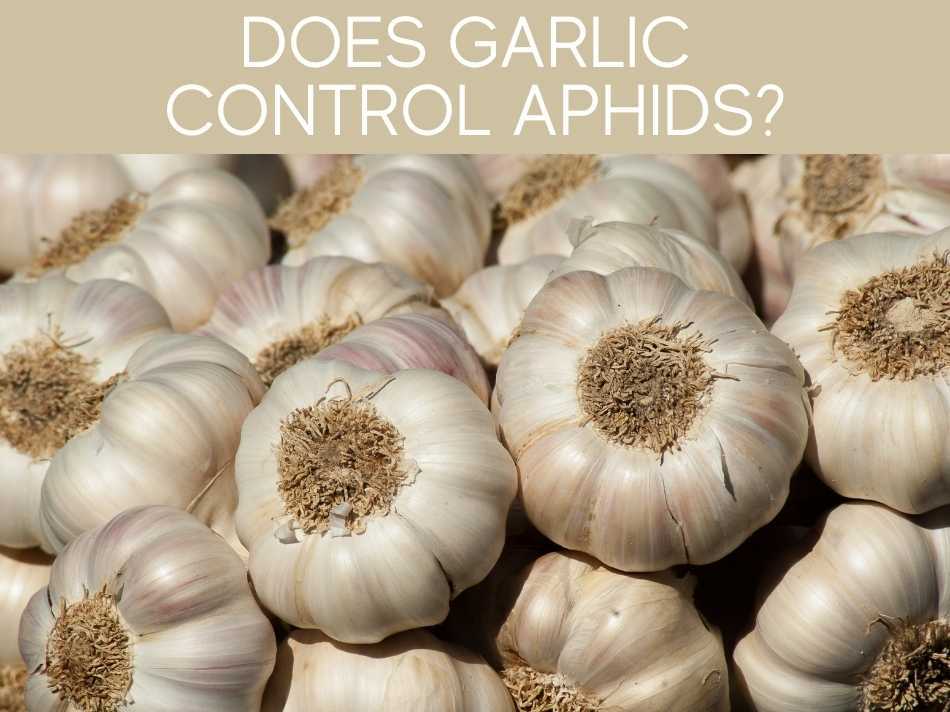
Garlic’s pungent smell deters many pests making it an effective pest management technique employed by many gardeners.
Among other pests, garlic also repels aphids.
An effective homemade aphid repellent is a garlic spray that you can make by blending garlic with water.
Strain the mixture and add some dish soap and cayenne pepper in it before adding it to the sprayer bottle.
Spray the mixture on the plants, especially the undersides of the leaves to control aphids and other pests.
If the plants are suffering from an aphid infestation, spray garlic on them daily.
If you’re using the technique as a preventive measure, spraying once a week, or every few days should be sufficient.
Do Chives Keep Aphids Away?
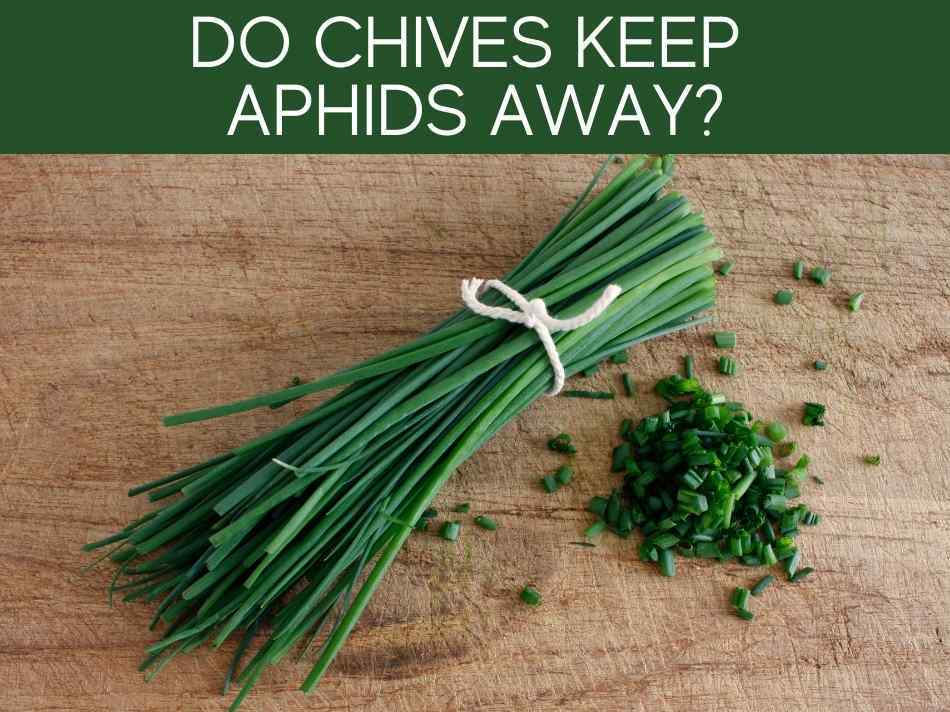
Another natural way to repel aphids is to grow repellent plants.
While many plants in your garden seem to attract aphids out of nowhere, there are also species that repel them.
Plants from the allium family are often used for companion planting with vegetable crops to deter pests.
Among other alliums, chives repel aphids with their strong smell.
Grow chives and other repellent plants at multiple locations in your garden, especially near the plants that tend to attract aphids.
How To Get Rid Of Aphids On Herbs Naturally
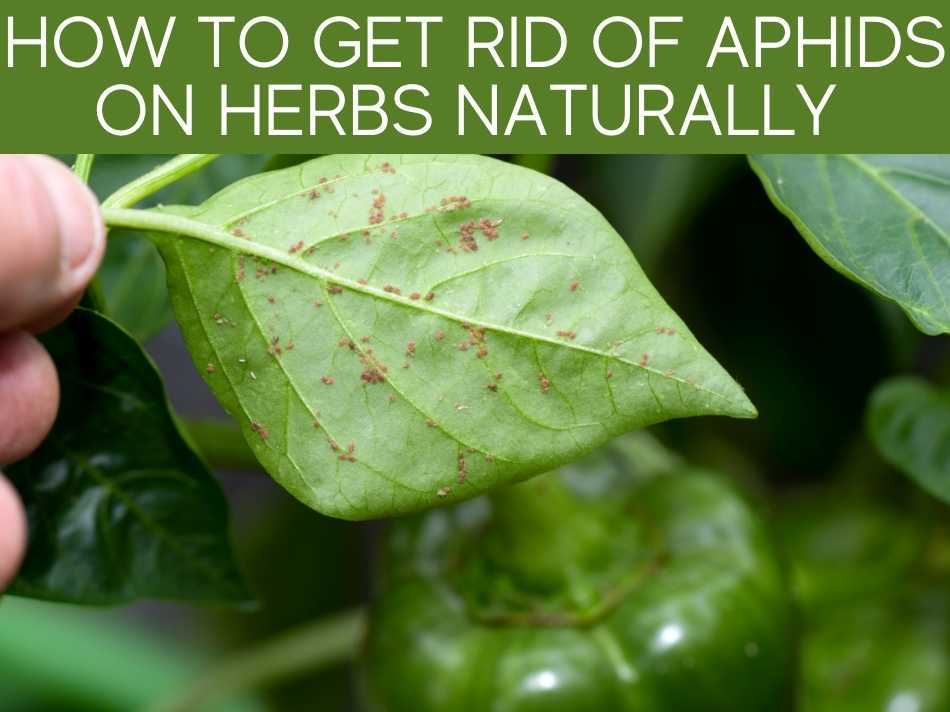
Aphids feed on many varieties of plants, including herbs.
They cause yellowing, leaf distortion and stunted growth.
As the pests feed, they secrete a sticky substance that encourages fungal diseases.
If aphids are a problem in your garden, grow herbs that naturally repel the pests.
Chives, dill, coriander, mint, and nasturtiums are some of the herbs that are not bothered by aphids.
Planting repellent herbs alongside other herbs can also deter aphids from your herb garden.
Avoid the use of excessive nitrogen-based fertilizers since they encourage pests.
If aphids attack your herbs, horticultural oils and insecticidal soaps can be used to control the infestations.
Check out our complete article on how to get rid of aphids on indoor plants.
Conclusion
Control aphids before they suck all the plant sap and take hold of your garden.
Follow the tips and choose a combination of methods that best suit your garden and your plants to reduce the aphid population and rejuvenate your plants.
